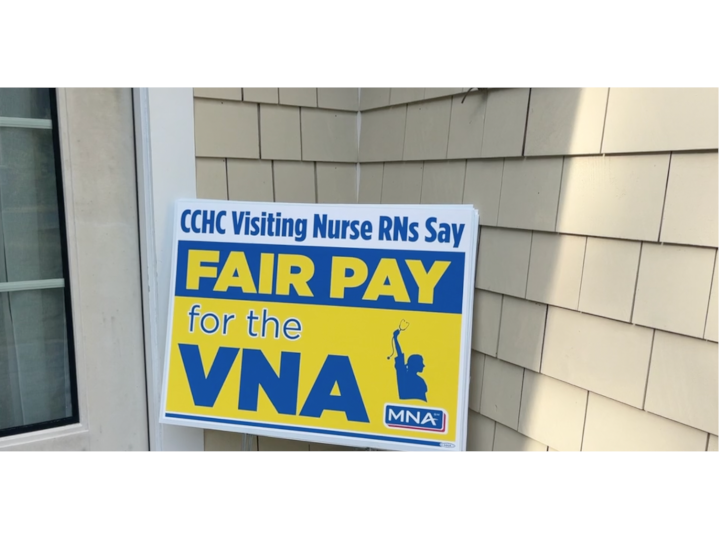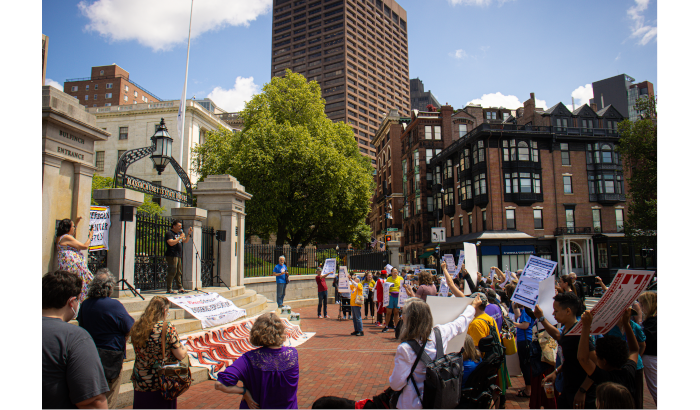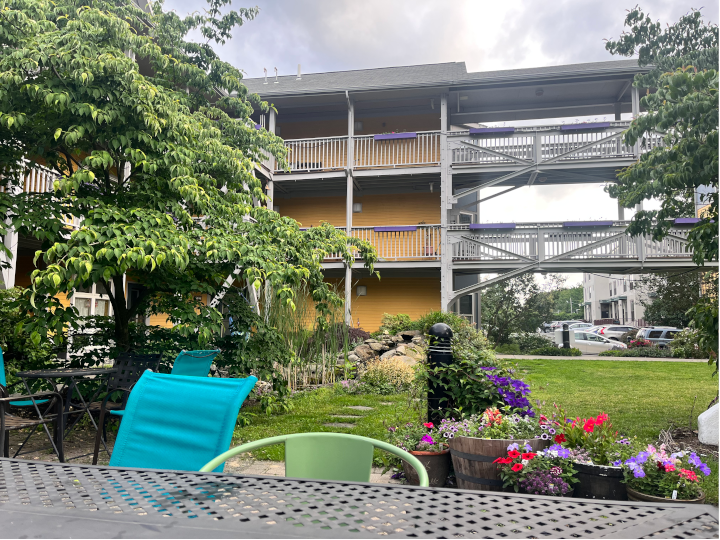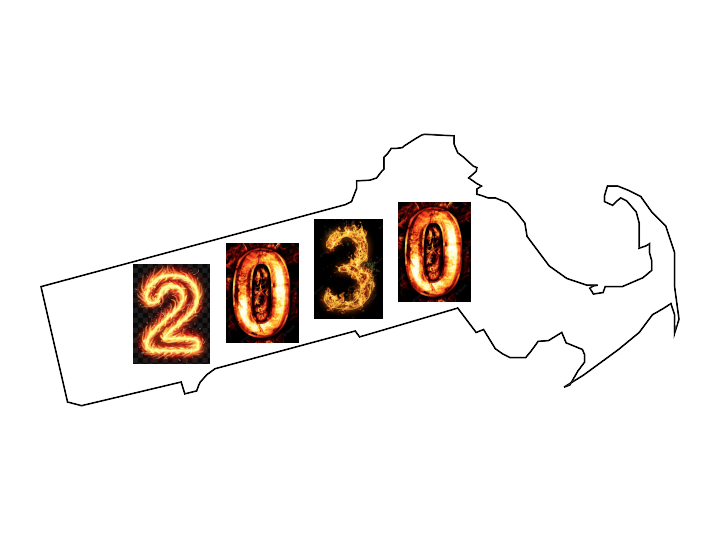The home health organization can’t afford to lose more nurses … but nurses can’t afford to stay
Hyannis, Mass. — Cape Cod Visiting Nurses Association’s branch of the Massachusetts Nurses Association, unanimously voted ‘yes’ in a strike vote August 19 after six months of contract negotiations with management. The union, which represents all VNA registered nurses working in the field, rejected management’s most recent counter proposal on the grounds that the wage scale was not sufficient to recruit and retain new nurses in Cape Cod’s economy.
Mike Barry, co-chair of the union’s bargaining committee, said the strike vote came as a last resort after six months and 15 negotiating sessions.
“We don’t want to leave our patients stranded, but at the same time, since management is pretty much deaf to our concerns, we have to do something,” he said.
Under their current contract, RNs in the VNA make between $31.94 and $49.77 an hour, moving up a peg in the wage scale for each year of their tenure up to 13 years. The union has been arguing for a 15-17% increase in the wage scale to adjust for the high costs of living on Cape Cod. A recent counterproposal from management moved the wage scale up to a range of $33.70 to $55.01, which is a 5.5 to 10.5% increase. The two groups had still not reached an agreement following a negotiation on August 21.
Also in the negotiation is longevity bonuses, overtime pay structure, and degree differentials, though the bargaining committee said wages were their top priority.
The committee pointed to a recent cost-of-living adjustment for nurses at Cape Cod and Falmouth Hospitals, which made the wage scale for RNs $35.64 to $71.20, outside of contract negotiations. Both hospitals and the VNA are under the umbrella of Cape Cod Healthcare. Under these contracts, RNs at the VNA with tenures of 13 years or more make nearly 30% less than their counterparts at the hospitals, and 10% less than licensed practical nurses, who have completed less training than RNs and can provide more limited care.
According to the union, 90% of their RNs in the field have tenures of at least 13 years already.
Hospital nurses generally have a higher wage scale due to the high-pressure environment and demands, and in a statement to LCTV, VNA management said their wage offers were “among the highest in the state for Home Health and Hospice organizations.”
“VNA remains dedicated to negotiating in good faith to reach a fair agreement that acknowledges the exceptional care our nurses provide every day, while considering the best long-term interests of the Agency in providing quality patient care in our communities,” management continued in their statement.
The VNA union argues that due to the high cost of living, their economic situation is most comparable to that of Boston’s VNA, whose wage scale is around 30% higher across the board.
“We all live on the Cape, we all have to buy the same food, we all go to the same gas stations, we all have to try to look for a home if we don’t already have a home,” Barry said. “When I go to the gas station, they’re not gonna say, ‘Oh, you work for the VNA? I’m gonna give you gas for 70% of what it costs.’ So we get nurses that like this home care model but just can’t stay here.”
That was the case for Aria Robbins, an RN at the VNA in hospice care who had to move in with her parents to afford living and working on Cape Cod. Robbins said the low wages and shortage of nurses takes a toll on her and her patients.
A recommended, “safe” hospice caseload, she said, is 12-14 patients. Hers is often close to 20.
“I’m always having to put in for extra time, I’m not getting to see my kids, and I’m not getting to see my patients, which is what my job is all about.”
Robbins gave her notice recently and took a job at a smaller hospice agency on the Cape with a 47% pay raise. She was the ninth nurse to leave the VNA this year. No new RNs have come on since last September, so the count of practicing RNs is down from 70 to 61.
Float nurses and traveling nurses often have to pick up the slack, Barry said, who often don’t have the relationships or context the patients need. Sometimes, patients are skipped entirely.
“Patients are getting bumped, and when somebody comes home from the hospital, or they’re trying to manage a chronic condition that they’re having difficulty with, one day, two days, three days can mean a lot, and it can send them back into the hospital,” Barry said.
The union has agreed to another negotiation session Friday and will give notice of a strike if they fail to reach an agreement then, Barry said. Management declined to comment following the strike vote.
“We really do need to get wages and a manageable workday to attract new nurses, or else I think the VNA won’t be here anymore,” Barry said.
Note: This reporting was initially done for a story on Lower Cape TV, which can be found here.
This article was produced for HorizonMass, the independent, student-driven, news outlet of the Boston Institute for Nonprofit Journalism, and is syndicated by BINJ’s MassWire news service.






